Character Roles

In what ways do strong female characters in literature shape our perceptions of women's roles and capabilities ?
Strong female characters in literature challenge traditional gender roles and showcase the capabilities of women beyond their stereotypical representations. They inspire women readers, defy gender stereotypes, promote diverse representation, celebrate female relationships, break societal barriers, and expand horizons. These characters shape our perceptions of women's roles and capabilities and promote gender equality.

What role does sports play in the development of character in literature ?
In literature, sports often serve as a metaphor for life and can play a significant role in the development of character. This is because sports provide a framework for exploring themes such as competition, teamwork, perseverance, and overcoming adversity. Here are some ways in which sports can shape characters in literature: - **Competition**: Sports can motivate characters to strive for excellence and push their limits. Rivalries between characters can create tension and conflict, driving the plot forward. The experience of winning or losing can teach characters about humility, grace, and resilience. - **Teamwork**: Sports often require characters to work together towards a common goal, fostering cooperation and communication skills. Characters may have to make sacrifices for the sake of the team, demonstrating selflessness and loyalty. Sports can provide opportunities for characters to take on leadership roles and develop leadership skills. - **Perseverance**: Sports stories often involve characters facing challenges and setbacks, but ultimately persevering through them. Characters may demonstrate grit and determination in pursuing their athletic goals, reflecting their overall character traits. The ability to bounce back from failure or injury can showcase a character's resilience and adaptability. - **Overcoming Adversity**: Sports can present physical challenges that characters must overcome, symbolizing larger obstacles in their lives. Facing adversity on the field or court can lead to emotional growth and maturity in characters. For characters who are athletes, sports can be a crucial part of their identity formation and self-discovery. Examples in literature include "The Natural" by Bernard Malamud, "Friday Night Lights" by H.G. Bissinger, and "Ender's Game" by Orson Scott Card.

How do sports help in building character and personal growth ?
The text discusses the various ways in which sports can contribute to building character and promoting personal development. It highlights how sports can help develop discipline, promote teamwork, cultivate perseverance, encourage leadership, enhance self-esteem, teach adherence to rules, facilitate social interaction, improve physical health, and teach individuals how to handle pressure. The author emphasizes that the lessons learned through sports participation can translate into valuable life skills that are essential for success both in sports and beyond. Overall, the text suggests that sports offer an array of benefits that stretch far beyond physical fitness and play a significant role in shaping character and fostering personal growth.

In what ways do women contribute uniquely to leadership roles in the workplace ?
Women's contributions to leadership roles in the workplace include empathy, emotional intelligence, inclusivity, collaborative leadership, adaptability, communication skills, and innovative thinking. These qualities can lead to more compassionate and diverse work environments, effective decision-making, and creative problem-solving.
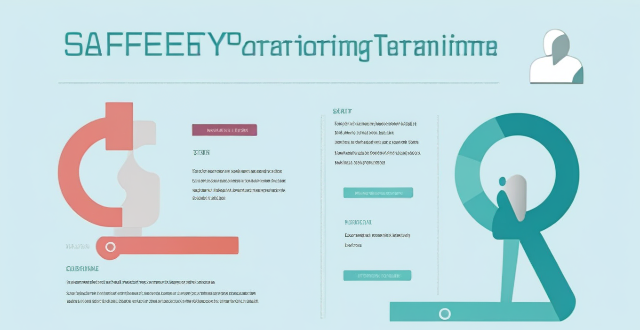
How can personal safety training be tailored to different risk levels and job roles within an organization ?
Personal safety training is crucial for protecting employees. Tailoring this training to different risk levels and job roles ensures that each employee receives the specific knowledge and skills needed for their work environment. This involves identifying risk levels, defining job roles, developing tailored training programs, incorporating practical exercises, and continuously updating and evaluating the training's effectiveness.

What is the role of sports in character building during adolescence ?
The article discusses the significant role sports play in character building during adolescence. Sports contribute to physical health and self-discipline, teamwork and social skills, goal setting and perseverance, responsibility and time management, emotional intelligence and stress management abilities. Engaging in sports not only benefits young individuals physically but also shapes their personality and values, preparing them for success in all aspects of life.
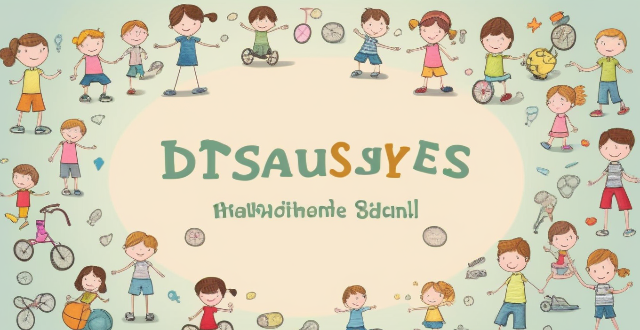
What role do sports play in character building for children ?
The article discusses the various ways in which sports contribute to the overall personality development of children. Sports ensure physical health and well-being, teach valuable life skills such as teamwork, leadership, communication, and goal setting, impact emotional development by boosting self-esteem, teaching resilience, and handling pressure, provide opportunities for socialization, and play a crucial role in moral development by instilling values such as integrity, respect, and responsibility. The author concludes that sports are not just about physical fitness but are powerful tools for character building in children.
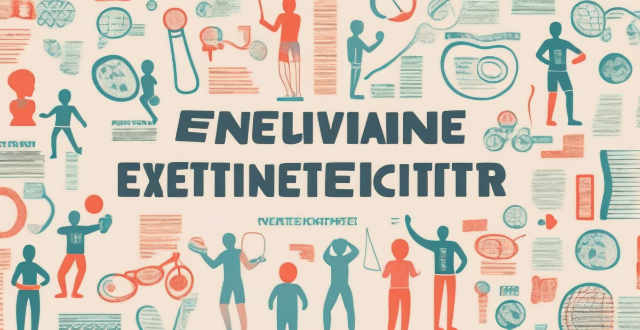
How does sports influence literary creation ?
The influence of sports on literary creation is explored in this article. Sports have provided writers with motivation and inspiration, introduced themes and characters, contributed to realism and atmosphere, and served as a vehicle for social commentary. Examples from various literary works are given to illustrate these points.
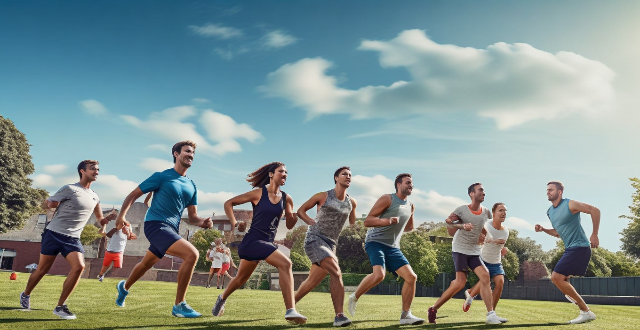
What role does sports play in shaping an individual's personality and character ?
Sports play a crucial role in shaping an individual's personality and character. They foster the development of social skills such as teamwork, leadership, and resilience. Participating in sports also builds self-confidence through achievement and overcoming fears. Additionally, sports promote discipline and time management by requiring consistent practice and training schedules. Goal setting is another important aspect of sports that teaches individuals about planning and focus. Finally, sports encourage healthy lifestyle habits by promoting physical fitness and raising awareness about proper nutrition. Overall, sports provide valuable experiences that contribute to personal growth and success in various aspects of life.

How can we encourage more women to pursue leadership roles ?
Encouraging Women to Pursue Leadership Roles - **Education and Awareness**: Promote STEM education, highlight role models, address gender stereotypes. - **Workplace Policies and Practices**: Establish flexible work arrangements, provide mentorship programs, enforce anti-discrimination laws. - **Networking and Professional Development**: Sponsor women's networking events, offer leadership training programs, create women-specific scholarships. - **Cultural Change and Empowerment**: Promote a culture of inclusivity, address the confidence gap, celebrate women's achievements.
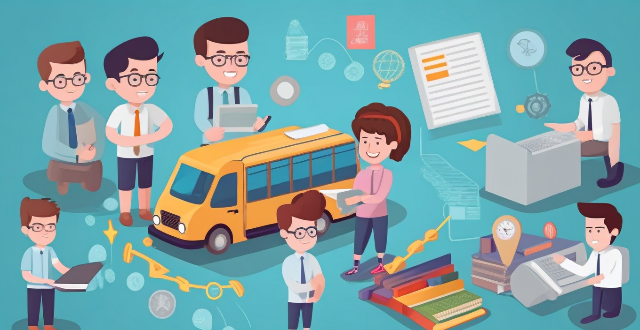
What character traits are essential for effective student leadership, and how can they be encouraged ?
Effective student leadership requires character traits like integrity, responsibility, empathy, courage, and adaptability. These traits help leaders inspire, motivate, and guide peers towards common goals. Encouraging these traits involves leading by example, open communication, ethical decision-making, assigning tasks, following up on progress, recognizing effort, active listening, promoting diversity, developing emotional intelligence, risk-taking opportunities, conflict resolution techniques, building a supportive environment, enhancing problem-solving skills, promoting continuous learning, and establishing feedback mechanisms.

How does Fintech influence the job market in the finance industry ?
The influence of fintech on the job market in the finance industry has led to the creation of new roles and changes in the skillset required for existing positions. Fintech companies have increased demand for software developers, data scientists, and cybersecurity experts. Additionally, specialized financial roles like fintech startup founders, regulatory compliance officers, and customer experience managers have emerged. Traditional finance roles such as bankers, accountants, and investment advisors now require proficiency in digital tools and an understanding of automation and data analytics. As technology continues to advance, the finance industry workforce will need to adapt continuously to stay relevant in the changing job market.

How does sports leadership differ from other types of leadership ?
Sports leadership is distinguished by its goal-oriented focus, clear team hierarchy, emotional intensity, physical component, short-term outcomes, public scrutiny, adaptability, and cultural impact. Unlike other types of leadership, sports leaders must manage high levels of emotion, direct physical performance, and adapt quickly to changing circumstances during a game. They also play a significant role in shaping the culture and values of their team, which can have a profound impact on the wider community.

What are the benefits of fostering leadership in students from a young age ?
Fostering leadership in students from a young age has numerous benefits, including enhanced personal development, improved social skills, increased confidence, better academic performance, preparation for future roles, and a positive impact on society. Leadership training helps students develop valuable skills such as decision-making, problem-solving, time management, communication, collaboration, and empathy. These skills are beneficial in academic settings and personal lives, leading to well-liked and respected individuals. Taking on leadership roles also builds confidence and self-esteem, translating into other areas of life, including academic performance and future career prospects. Research shows that students with strong leadership qualities tend to perform better academically due to effective study habits, time management skills, and a strong work ethic. Fostering leadership prepares students for future roles in the workplace, community organizations, and political arenas, setting them up for success later in life. Developing strong leaders from a young age creates an engaged and active citizenry capable of addressing complex issues and working towards positive change.

What kind of expertise do celebrities bring to their roles as entrepreneurs ?
Celebrities often leverage their fame and influence to venture into entrepreneurship. The expertise they bring to their roles as entrepreneurs can vary, but some common areas include name recognition, influence and social media presence, networking opportunities, creative vision, financial resources, public speaking and charisma, negotiation skills, perseverance and resilience, and personal brand alignment. These factors can contribute to the success of their ventures and set them apart from other entrepreneurs.

What are the roles of religion and spirituality in South American culture ?
The article discusses the various religious and spiritual traditions in South America, including Catholicism, Indigenous beliefs, Afro-Caribbean traditions, and New Age spirituality. It highlights how these traditions have influenced the culture, customs, and beliefs of the people living in this region. The article also emphasizes the role of religion and spirituality in promoting social values, preserving cultural heritage, fostering environmental consciousness, and promoting intercultural dialogue.

What roles do early warning systems play in earthquake preparedness ?
Early warning systems are vital in earthquake preparedness, providing immediate alerts, coordinating emergency responses, implementing structural protection measures, and supporting post-event recovery efforts. They enable quicker reactions, automated responses for critical infrastructure, enhance public awareness through education campaigns, and ensure widespread dissemination of information. These systems also facilitate pre-emptive actions by emergency services, transportation management, evacuation planning, and route optimization. In terms of structural protection, early warning integration in smart buildings and adaptive construction techniques improve infrastructure resilience. Post-event recovery support includes rapid damage assessment, community recovery plans, efficient resource allocation, and psychological support. Overall, early warning systems play a crucial role in saving lives, minimizing economic losses, and speeding up recovery processes in societies prone to seismic activities.
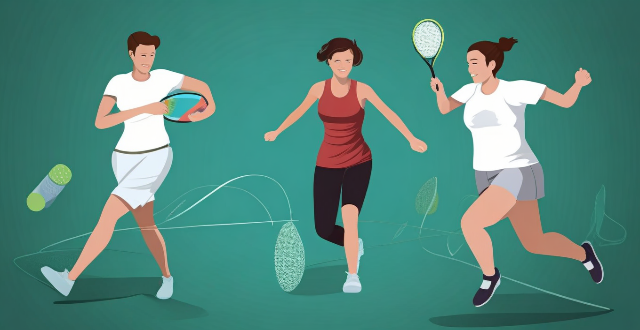
What strategies have been successful in integrating sports programs with core educational values ?
Integrating sports programs with core educational values involves aligning athletic goals with academic objectives, promoting inclusivity and respect, fostering lifelong health and wellness, developing personal qualities and leadership skills, ensuring collaboration between educators and coaches, and continuously assessing progress for improvement.

How can I increase my chances of getting a scholarship ?
To increase your chances of getting a scholarship, researchTo increase your chances of getting a scholarship, research strong academic record, engage in engage in extracurricular activities and community service, prepare compelling application materials including personal statements and recommendations, and stay organized throughout the application process.

How can schools support the holistic development of teenagers ?
Schools play a crucial role in the holistic development of teenagers by providing various support systems. Here is a breakdown of how schools can support the overall growth of young individuals: ### **Academic Excellence** - **Curriculum Design**: Offer a diverse range of subjects to cater to different interests and aptitudes. - **Extracurricular Activities**: Encourage participation in sports, arts, music, etc., to promote physical health and creativity. - **Mentorship Programs**: Pair students with mentors for academic and personal guidance. - **Study Skills Workshops**: Conduct workshops on time management, note-taking, and test preparation. ### **Emotional Well-being** - **Counseling Services**: Provide mental health support and address personal issues. - **Stress Management Classes**: Teach techniques like meditation, yoga, or mindfulness. - **Social Emotional Learning (SEL) Programs**: Integrate SEL into the curriculum to develop emotional intelligence. - **Peer Support Groups**: Create safe spaces for sharing experiences and mutual support. ### **Character Building** - **Moral Education**: Incorporate values like integrity, respect, and responsibility into school culture. - **Community Service Projects**: Foster empathy and social responsibility through volunteering. - **Leadership Opportunities**: Allow students to take on leadership roles within the school community. - **Cultural Exchange Programs**: Promote diversity through cultural exchange programs or international trips. ### **Career Planning** - **Career Counseling**: Offer guidance based on individual strengths and interests. - **Internships & Apprenticeships**: Partner with local businesses for hands-on experience. - **College & University Fairs**: Host fairs for interaction with higher education representatives. - **Entrepreneurship Clubs**: Support entrepreneurial endeavors through clubs or classes focused on business skills. ### **Health & Physical Well-being** - **Physical Education**: Ensure regular PE classes to promote fitness. - **Health Education**: Teach about nutrition, substance abuse prevention, and wellness. - **Sports Teams**: Organize competitive and recreational sports teams. - **Health Services**: Have nurses or health professionals available for medical advice and first aid. ### **Technology & Innovation** - **Computer Literacy Courses**: Teach basic computer skills and programming concepts. - **STEM Clubs**: Foster interest in STEM through extracurricular clubs. - **Digital Citizenship**: Educate about responsible internet use and digital ethics. - **Innovation Labs**: Establish spaces for creative projects and research using modern technology. ### **Environmental Stewardship** - **Sustainability Initiatives**: Implement recycling programs and energy-saving measures. - **Green Clubs**: Form environmental clubs focusing on conservation efforts. - **Field Trips**: Visit national parks, nature reserves, or sustainability centers. - **Service Learning Projects**: Connect classroom learning with real-world environmental issues. By adopting these strategies, schools create an environment that nurtures the intellectual, emotional, moral, physical, and creative aspects of teenagers' lives, preparing them for success in all facets of adulthood.

Are there any apps or tools that can help me track my progress in understanding different texts ?
The text discusses various apps and tools that can help users track their progress in understanding different texts, including Reading Comprehension Apps like Quizlet and Khan Academy; Productivity Tools for Text Comprehension such as Evernote and Trello; Online Tools for Text Analysis like SparkNotes and CliffsNotes; and Personalized Learning Platforms like Adaptive Learning Systems. These resources provide features such as flashcards, video tutorials, annotations, note-taking, project boards, database views, plot summaries, character analysis, chapter-by-chapter breakdowns, close reading, personalized pathways, real-time feedback, and reading logs to aid comprehension and monitor progress.

How do sports teach important life skills such as teamwork, perseverance, and leadership ?
The text discusses how sports teach important life skills, including teamwork, perseverance, and leadership. In sports, teamwork is crucial for success, requiring communication, cooperation, and understanding each other's strengths and weaknesses. Athletes learn to collaborate effectively with others, which can be applied in various aspects of life. Sports also teach perseverance by exposing athletes to challenges and setbacks, developing resilience and determination. Participating in sports provides opportunities for individuals to develop leadership skills, such as taking initiative, motivating teammates, and being responsible for the team's success or failure. These skills not only contribute to success in athletics but also have far-reaching benefits in various aspects of life.

How does team sports contribute to social well-being ?
Team sports significantly contribute to social well-being by building a sense of community, promoting cooperation and teamwork, providing opportunities for personal growth, enhancing health and well-being, integrating into society, and encouraging civic engagement and social responsibility. These activities not only bring people together but also teach valuable life skills that extend beyond the playing field, positively impacting individuals and society as a whole.

What role do education and awareness play in achieving social harmony ?
Education and awareness play a crucial role in achieving social harmony. They are important means to improve the overall quality of citizens, promote social fairness and justice, and maintain stable and harmonious development of society. The following will specifically discuss the role of education and awareness in achieving social harmony: 1. **Promote Education Fairness** - **Equalization of Education Resources**: Fair distribution of educational resources is an important guarantee for education equity. It is necessary to narrow the gap in educational resources between urban and rural areas and regions through government investment and policy guidance, so that every child can enjoy quality educational resources. - **Elimination of Education Barriers**: Reducing or eliminating educational barriers, such as high tuition fees and unreasonable admission policies, ensuring that children from different family backgrounds have equal access to education opportunities. - **Compensatory Education Policy**: Implementing compensatory education policies, providing additional support for disadvantaged groups, such as financial assistance and special education programs, to help them complete their education smoothly. 2. **Improve Education Quality** - **Curriculum Reform**: Continuously reform the curriculum according to social development needs and student characteristics to cultivate innovative thinking and practical abilities. - **Teacher Professional Development**: Enhancing teacher training and professional development to ensure that teachers possess the necessary teaching capabilities and ethical standards, thereby improving the quality of education. - **Technology Integration**: Integrating modern information technology into the teaching process to create a more abundant learning environment and methods, improving learning efficiency and interest. 3. **Cultivate Core Socialist Values** - **Value Education**: Incorporating the core values of socialism into the education system, starting from primary school to university, through various channels to cultivate students' sense of patriotism, sense of responsibility, honesty, and friendliness. - **Role Model Teaching**: Finding and publicizing role models in society, making core values concrete and vivid through stories and examples, enhancing the effectiveness and appeal of value education. 4. **Strengthen Community Education Function** - **Family Education Guidance**: Providing scientific family education guidance to help parents correctly understand and participate in their children's education, creating a favorable environment for growth at home. - **Social Practice Bases**: Establishing social practice bases to allow students to participate in community service, volunteer activities, etc., enhancing social responsibility and practical abilities. 5. **Optimize Education Evaluation System** - **All-round Evaluation Mechanism**: Establishing a comprehensive evaluation mechanism that does not merely focus on academic performance but also includes moral character, creativity, and physical health to guide students' all-round development. - **Fair Admission Mechanism**: Improving the college entrance examination and enrollment system to ensure fairness and transparency, allowing students from different regions and family backgrounds to compete on an equal footing. 6. **Build a Learning Society** - **Lifelong Learning Concept**: Promoting the concept of lifelong learning, encouraging citizens to continuously learn new knowledge and skills to adapt to societal changes and individual development needs. - **Diversified Learning Pathways**: Providing diverse learning pathways, such as adult education, online courses, and open universities, making it easier for citizens to access education. 7. **Strengthen National Identification** - **Patriotism Education**: Deepening patriotism education through historical and cultural education, enhancing citizens' national identification and pride. - **Core Value Promotion**: Publicizing and promoting the core values of socialism through festivals, commemorative days, etc., fostering a sense of national identity among citizens. 8. **Promote Social Responsibility** - **Volunteer Service**: Encouraging citizens to participate in volunteer services, enhancing their sense of social responsibility through helping others and serving society. - **Public Welfare Promotion**: Promoting public welfare projects through the media and educational institutions, raising citizens' enthusiasm for participating in public welfare undertakings. In addition to the above discussion on the specific roles of education and awareness in achieving social harmony, the following points need special attention: - **Pay Attention to Rural Education**: More attention should be paid to the development of rural education, improving the allocation of educational resources to reduce the urban-rural education gap. - **Consider Diversity in Teaching**: Considering regional, ethnic, and cultural diversity in education, implementing tailored teaching strategies to meet the needs of different groups. - **Strengthen International Exchange**: Strengthening international exchange and cooperation in education, introducing advanced educational concepts and practices to enhance the international competitiveness of domestic education. - **Emphasize Practical Education**: Emphasizing the importance of practical education, combining theoretical learning with practical application to cultivate students' practical abilities and innovation spirit.

How do sports documentaries differ from fictional sports films in terms of audience reception ?
Sports documentaries and fictional sports films differ in audience reception due to their distinct approaches to storytelling, emotional impact, and overall purpose. Sports documentaries focus on real-life stories, providing an authentic portrayal of athletes, teams, and events, while fictional sports films prioritize entertainment value, often incorporating drama, comedy, or romance elements alongside sports action. Documentaries typically follow a linear narrative structure, focusing on a specific timeline or event, while fictional films often feature complex plot twists and character arcs that add depth to the story. Both genres have their merits and can leave lasting impressions on audiences in different ways.